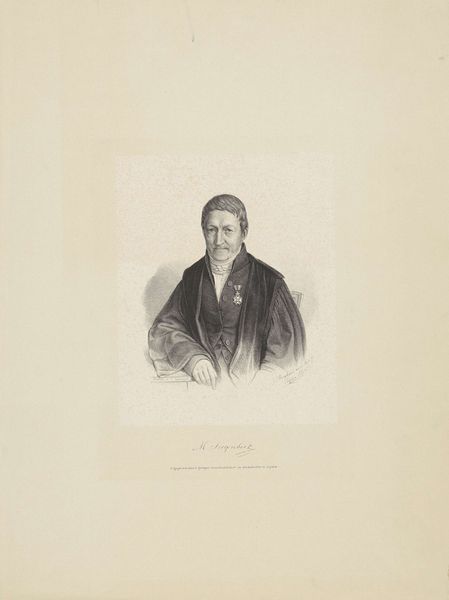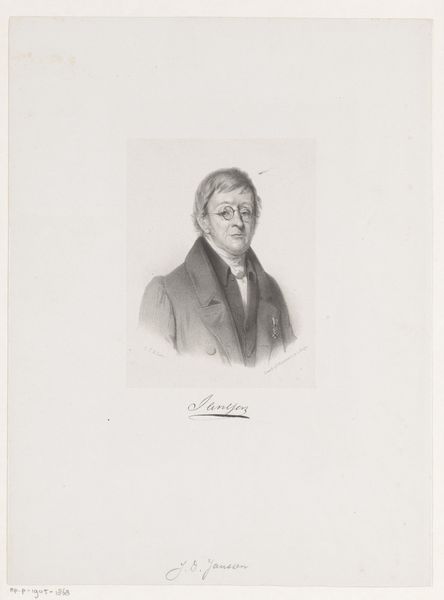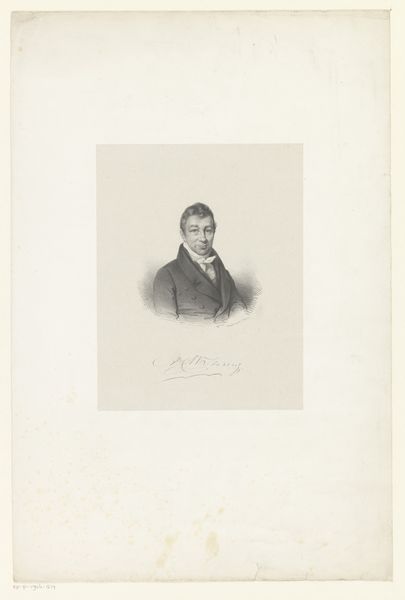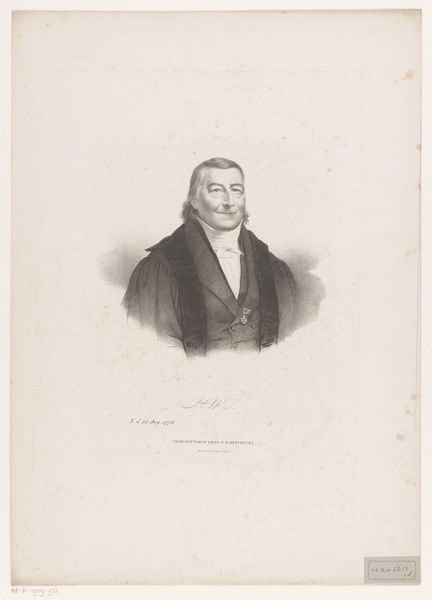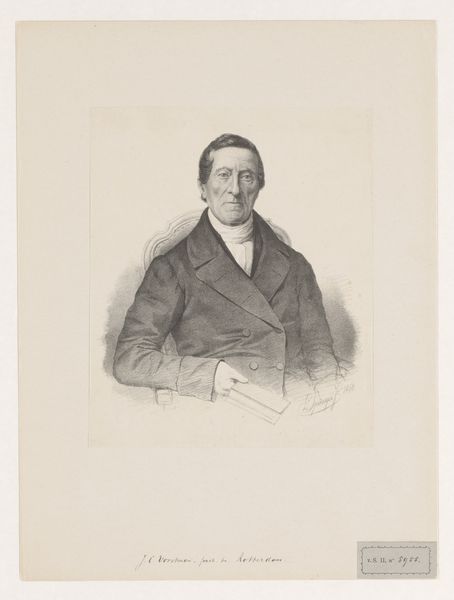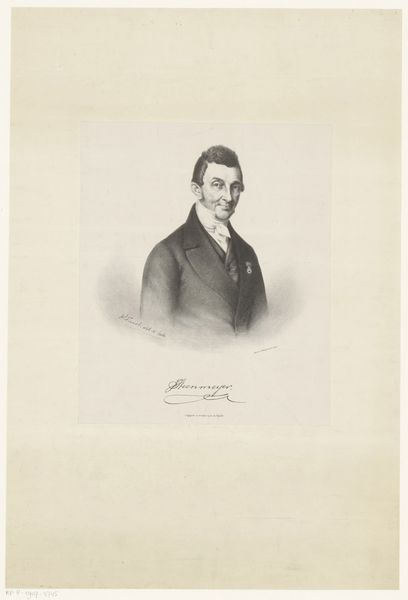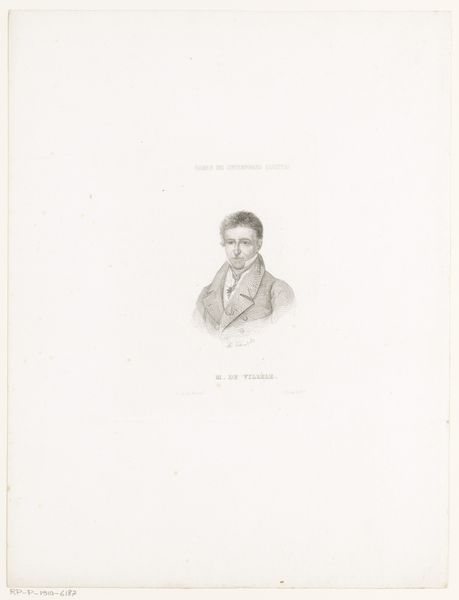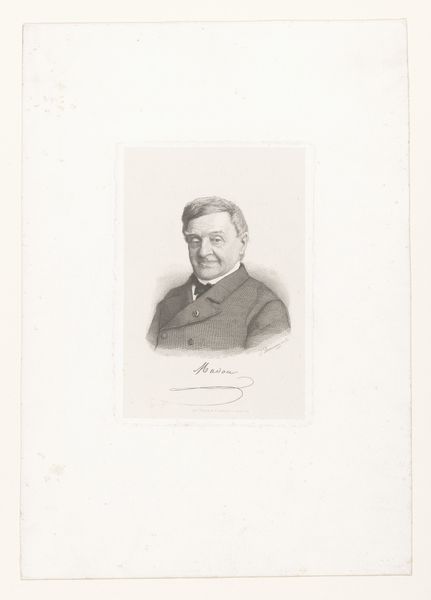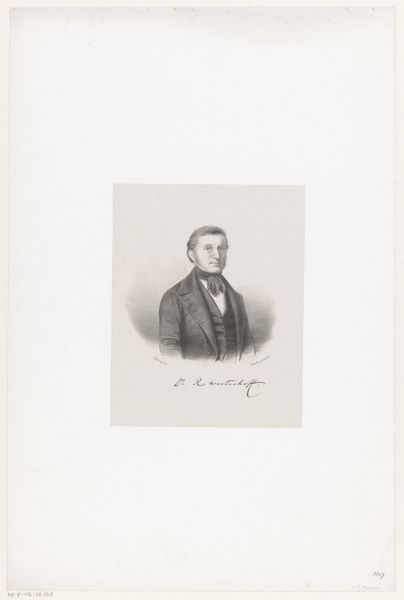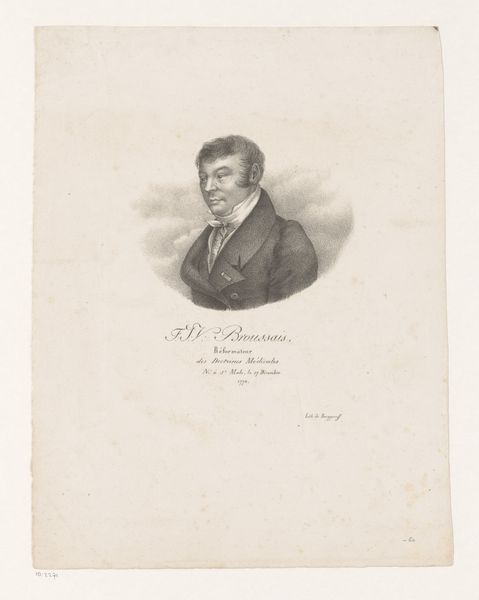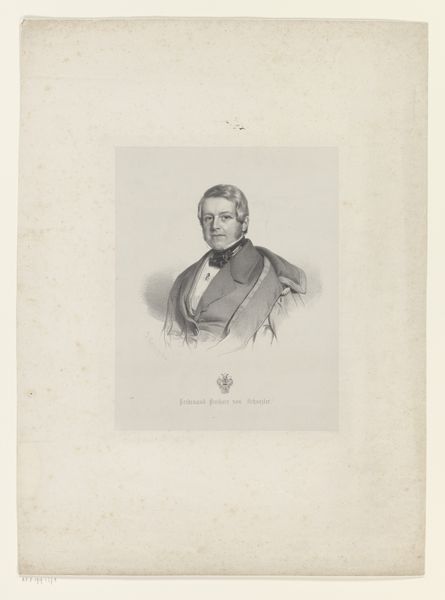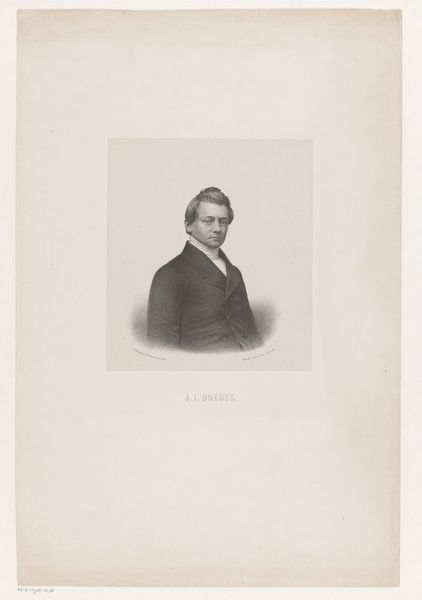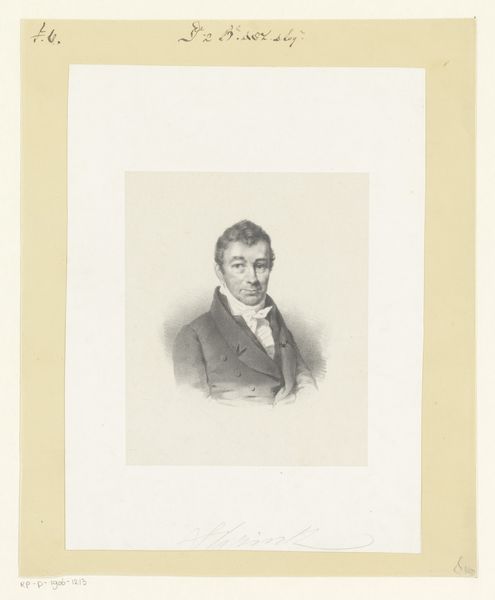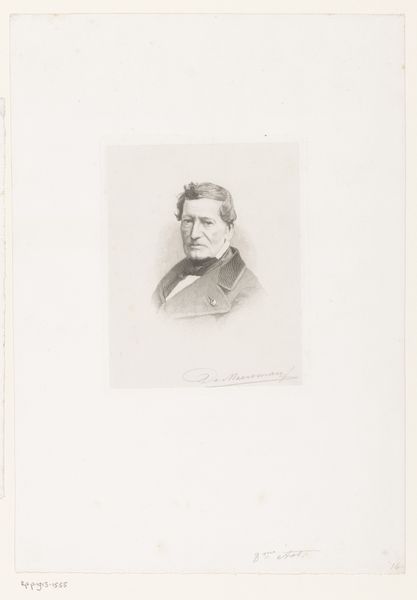
drawing, pencil
#
portrait
#
pencil drawn
#
drawing
#
pencil sketch
#
pencil drawing
#
romanticism
#
pencil
#
academic-art
Dimensions: height 345 mm, width 258 mm
Copyright: Rijks Museum: Open Domain
Editor: Here we have Leendert Springer’s "Portret van Matthijs Siegenbeek," dating from 1809 to 1853, executed in pencil. The portrait is striking. It is rather austere and feels incredibly formal, yet delicate because of the medium. What strikes you about this drawing? Curator: Consider the linearity. Observe the precise hatching used to build tone and form. Notice how the artist exploits the inherent properties of pencil—the subtlety, the range of values achieved through pressure. It’s a display of masterful control over the medium. Editor: So, the technique is a focal point, but what about its impact? How does the academic style and use of pencil influence the perception of the sitter? Curator: The choice of pencil lends an air of directness, almost scientific objectivity. The sharp, clean lines convey a sense of intellectual rigor. How does this linearity compare with sfumato in painting, or the use of color to establish presence? Springer eschews the tricks and delights of chiaroscuro or glazing for an approach to image-making predicated on draftsmanship, a more fundamental method. Editor: I hadn’t thought of it in that way, of the pencil as a conscious rejection of painterly techniques. Thank you! Curator: And you have prompted a view on the strategic placement of signature which also acts as a decorative framing of the sitter.
Comments
No comments
Be the first to comment and join the conversation on the ultimate creative platform.
